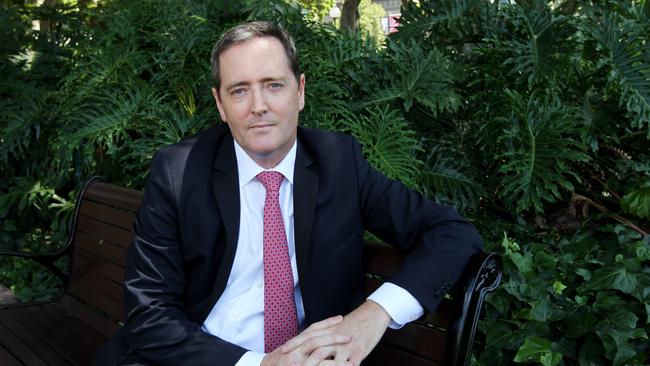RBA, ATO may be asked to fund early super payouts
The RBA could be asked to provide liquidity to help pay out workers seeking early access to super, under a new plan.

The Reserve Bank could be asked to provide liquidity to help pay out billions of dollars to workers wanting to take advantage of federal government moves to allow them early access to their superannuation, under a proposal gaining support in the super fund industry.
The concept, which has been put forward by Melbourne University finance professor Kevin Davis, comes as the industry negotiates with the government on its proposal to allow workers affected by the crisis to take out up to $20,000 from their super over the next few months.
The Davis proposal would involve Australian Tax Office paying out the superannuation payments to individuals, which would sit as a charge against their super accounts, to be recouped from their fund in, say, two years’ time.
“To fund the measure, the government could issue a bond which the superannuation funds would subscribe to,” Professor Davis wrote recently in an article for The Conversation which is being circulated in the industry.
“In addition the RBA would open the discount window to provide liquidity against the bond.”
Another twist would see the super funds going directly to the RBA discount to get the funds to pay out members, rather than having to sell off assets at the bottom of the market to pay them, and repaying the money to the central bank in a year or two when the markets recovered.
While the superannuation industry has publicly backed the federal government’s announcement to allow workers hit by the crisis to pull out as much as $20,000 from their super, there are also concerns it could see workers accessing their savings at the bottom of the market — leaving them with a permanent loss to their retirement savings.
There are also fears that funds could be swamped by a heavy administrative burden in the last two months of the financial year as they simultaneously deal with the collapse in world sharemarkets.
The chief executive of the Association of Superannuation Funds of Australia (ASFA), Martin Fahy, said the industry was in discussions with the federal government on how the early super withdrawals would work.
He said ASFA believed the ATO should make the payment to workers to reduce the administrative burden on the individual funds.
The ATO would then send total bills to each super fund to pay.
Dr Fahy did not want to comment on Professor Davis’ proposals.
But he said this week’s announcement represented a “significant change to the early release arrangements” for super.
“We need to do this in a timely and effective manner,” he said. “It should only be done as last resort for individuals after they access all other means of government support.
“We also should get the ATO to pay it and then get repaid by the funds.”
He said the super industry and the funds also needed to “look at ways we can offset as much as possible the impact on peoples’ long-term retirement incomes.”
Dr Fahy noted the government’s proposals involved an estimation that 1.3 million workers would be applying for the early access to their super for $10,000 before the end of June and another $10,000 in the next financial year.
“That’s a significant administrative load,” he said.
He said ASFA would prefer the ATO, which will initially process the claims from workers for early access to their super, to pay the money directly to individuals, recharging the super funds directly for the total bill.
“The fund would then directly reimburse the ATO,” he said. “This makes much more sense in our view.
“Anything which can take the administrative burden off getting this release will help.”
The Financial Services Council said it supported the temporary measures announced this week, which would “greatly assist Australians in financial hardship during the current national emergency.” FSC chief executive Sally Loane said the council would work closely with the government, regulatory agencies and the industry to “understand the potential impact of the package and ensure these measures are implemented in a way which manages liquidity and systemic risks.”
Ms Loane said the FSC welcomed moves by the Australian Prudential Regulation Authority and the Australian Securities & Investment Commission, announced on Monday, to temporarily suspend some of their planned regulatory and supervision initiatives as the industry dealt with the crisis and the new government initiatives.
David Elia, the chief executive of hospitality industry super fund Hostplus, said his fund supported the idea in principle but wanted to “better understand the detail” on how it would work.
“We have to be careful about the design of the scheme to ensure the integrity of the scheme is not compromised and it is genuinely directed to those experiencing financial hardship,” he said.
“There are other broader considerations for the entire superannuation industry that we have to consider, including the impact on an already stressed system dealing with current member inquiries related to recent investment market volatility and the impact on member balances.
“Many funds are already at full capacity dealing with member inquiries.”
He said there was a “real and heightened risk” from potential identity fraud with the scheme.
He said many members would not want to unnecessarily access their super now and crystallise losses from market falls.




To join the conversation, please log in. Don't have an account? Register
Join the conversation, you are commenting as Logout